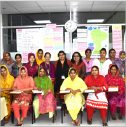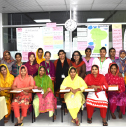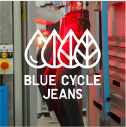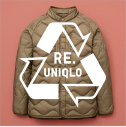Sustainability
Roundtable
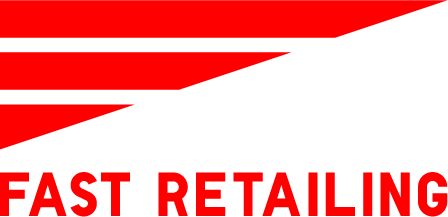

LifeWear clothing is designed to make everyone's life better. Driven by that philosophy, UNIQLO aspires to create a new industry that pursues business activities and sustainability in tandem. That means developing products based on customer feedback; making, transporting, and delivering just the right amount of clothing at the exact time that it is needed; encouraging customers to wear their favorite clothes for longer; and maximizing the value of clothes by not throwing them away when they are no longer needed. That’s the future we aspire to achieve. We are only able to conduct our business because we live in a stable society. We aspire to create a business that encourages more and more people to choose LifeWear and to see the world steer in a better direction.
UNIQLO holds an annual sustainability briefing to discuss this business approach and how it should be developed. Here, we introduce what progress has been made, along with specific figures and targets.

The 3rd Annual Sustainability Briefing: LifeWear = A New Industry
We hold sustainability briefings for journalists and analysts to introduce our thinking and initiatives around “creating LifeWear” and “sustaining LifeWear”, and to encourage a deeper understanding of our goals. Those initiatives include: developing stores that use renewable energy and energy-saving technologies; contributing to society by supporting refugees; nurturing future leaders and promoting activities through various foundations; expanding our increasingly popular RE.UNIQLO repair, reuse, and recycling activities; and making clothes that customers can enjoy wearing for longer.
Briefing date:
Tuesday, November 7, 2023
Speakers:
Koji Yanai
Director, Group Senior Executive Officer Fast Retailing Co., Ltd.
Yukihiro Katsuta Group Senior Executive Officer Fast Retailing Co., Ltd.
Masahiro Yubisui Group Executive Officer Fast Retailing Co., Ltd.
Keiko Mayuzumi Director, Global Environmental Management Sustainability Fast Retailing Co., Ltd.
Sustainability-related information
Targets and Action Plans
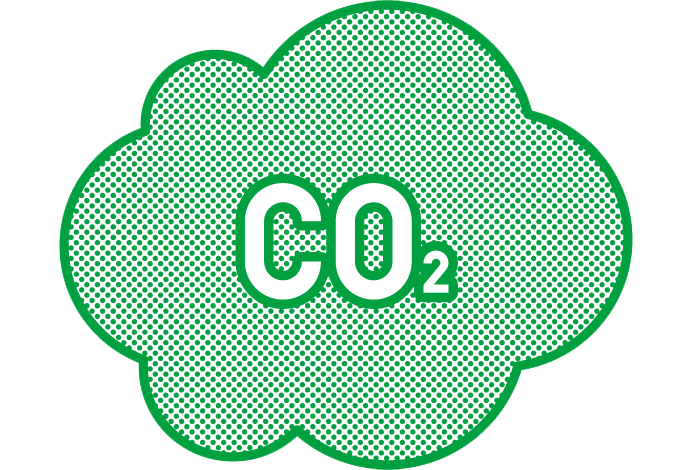
Reducing absolute GHG emissions
(FY2030 targets)-
Fast Retailing operations
Reduction in absolute GHG emissions compared
to fiscal 2019 base year90%
-
Use of electricity derived from renewable electricity sources
in stores and main offices worldwide100%
-
Supply chain
Reduction in absolute GHG emissions compared
to fiscal 2019 base year20%
-
Products
Ratio of recycled and other raw materials that emit lower GHG emissions
Approx.50%

Improving supply chain transparency
and establishing traceability
Increase transparency in the supply chain
and ensure traceability back to the raw materials stage.
Identify and quickly remedy any issues across the supply chain relating to human rights,
working conditions, and the environment.
Identify and begin disclosing information customers need to feel comfortable when selecting our products.
-

Eliminate discharge of
hazardous chemicals0contamination
(FY2030 target)
ZDHC wastewater compliance rate for major sewing and fabric factories: 99.9% (As of end 2022)
-

Increase ratio of women
in all management
positions globally50%
(FY2030 target)
Ratio of women in management positions throughout the Group rose to 44.7% in FY2023.
-

Promote ethical and
responsible raw
materials procurementDefined recommended and prohibited materials for each material type in our Raw Materials Procurement Guidelines. Began clarifying guideline compliance status and confirmation procedures.
-

Reduce water consumption
vs. 2020 levels10%
(by end 2025)
32% of target factories achieved their commitment to reduce per-unit water usage by 10% compared to 2020 levels (2021 result)
-

Reduce waste
Achieve zero waste (target)
To help achieve zero operational waste from materials used in the process of delivering clothes to our customers, we have reduced and recycled plastic bags used in packaging and reviewed the use of hangers and other items made of plastic.
UNIQLO Initiatives in Individual Fields
Reducing absolute GHG emissions
Promoting social contribution activities worldwide
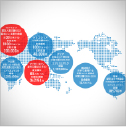
UNIQLO’S SUPPORT TO REFUGEES AND
OTHERS FORCED FROM HOME

EMPLOYMENT OF
REFUGEES
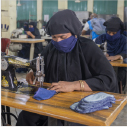
REFUGEE EMPOWERMENT PROJECT
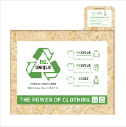
CLOTHING SUPPORT
THROUGH RE.UNIQLO
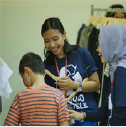
GLOBAL REFUGEE
SUPPORT EFFORTS

DISABILITIES
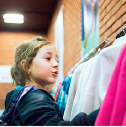
MAKING THE WORLD BETTER FOR FUTURE GENERATIONS

SPECIAL
OLYMPICS

STREET SOCCER
USA

NEW YORK MUSEUM
OF MODERN ART(MoMA)
PARTNERSHIP(U.S.)

UNIQLO
WHEELCHAIR TENNIS TOUR
Improving supply chain transparency
and establishing traceability
Eliminating discharge of hazardous chemical substances
Increasing ratio of women in all management positions globally
Promoting ethical and responsible raw materials procurement
Reducing water consumption
Reducing waste
Most Viewed Contents
-
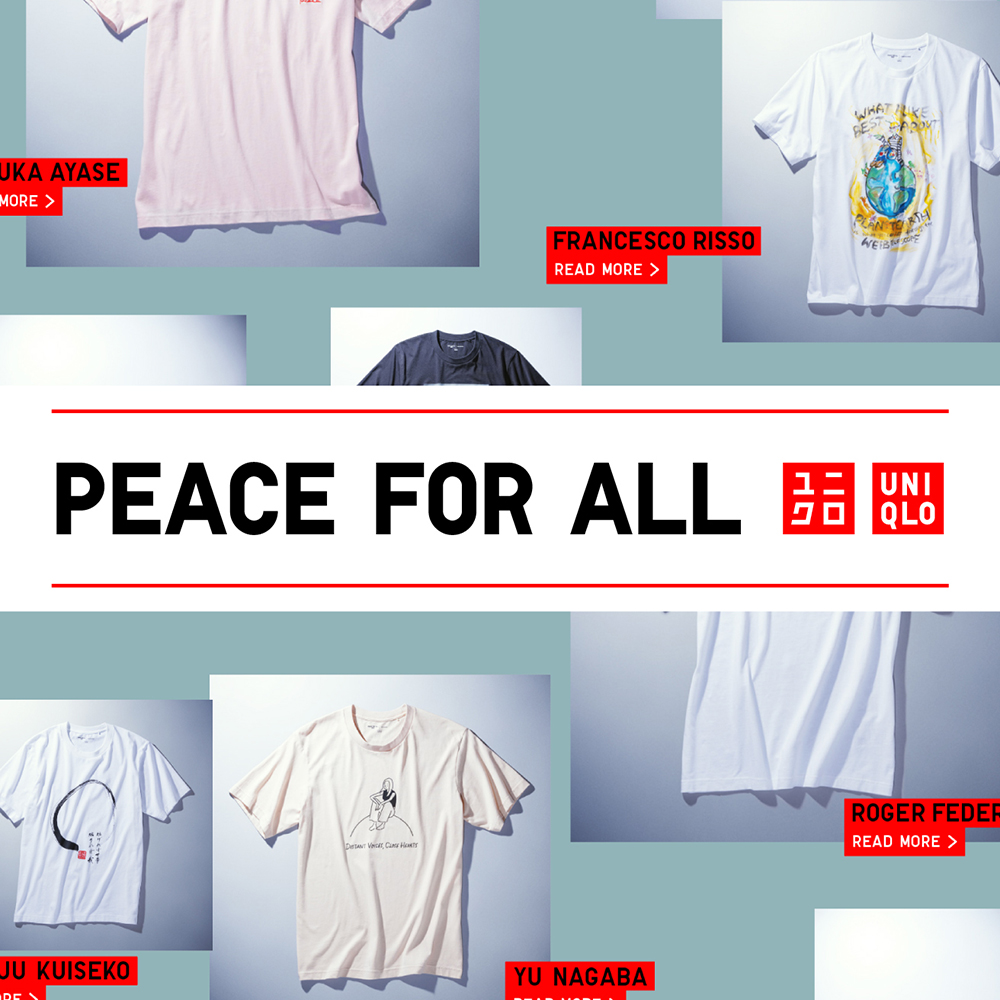
PEACE FOR ALL
A SINGLE T-SHIRT HAS THE POWER TO SPREAD PEACE. “It’s time for action, in the name of world peace.” Major figures who share this vision with...
Read More
-
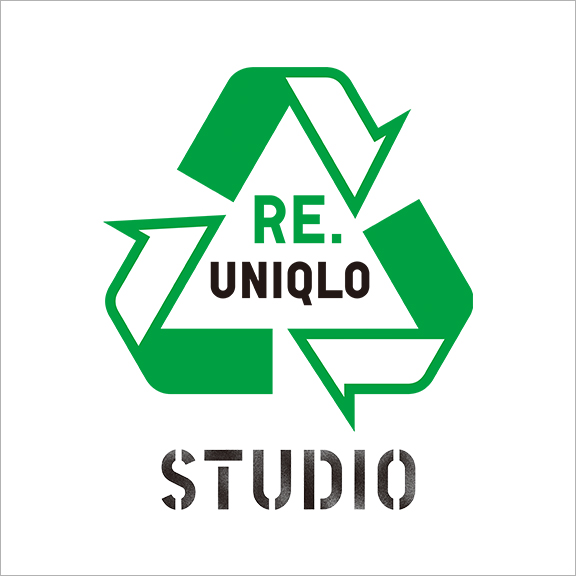
RE.UNIQLO STUDIO
Your UNIQLO clothes have a long life ahead of them. We're creating something positive for the future by keeping UNIQLO items in circulation....
Read More
-

UNIQLO DOWN RECYCLE
Recycling clothes into clothes, UNIQLO’s latest challenge that opens up new links between people, clothing, and the global environment. We are...
Read More
-
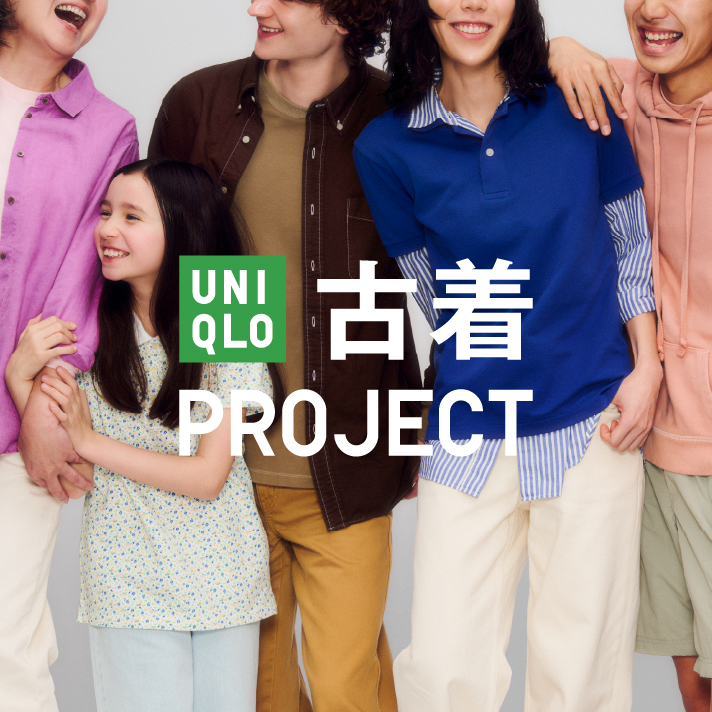
UNIQLO PRE-OWNED CLOTHES PROJECT by RE.UNIQLO
Once you’ve made the most of your clothes, it’s time to recycle. RE.UNIQLO is working towards a circular society by selling pre-owned clothes.....
Read More
Recommended Contents
-

RE.UNIQLO
Can your old clothing improve the future? Yes! At UNIQLO, we recycle your used garments through our circular sustainability programs. Take our recycled down ini...
Read More
-
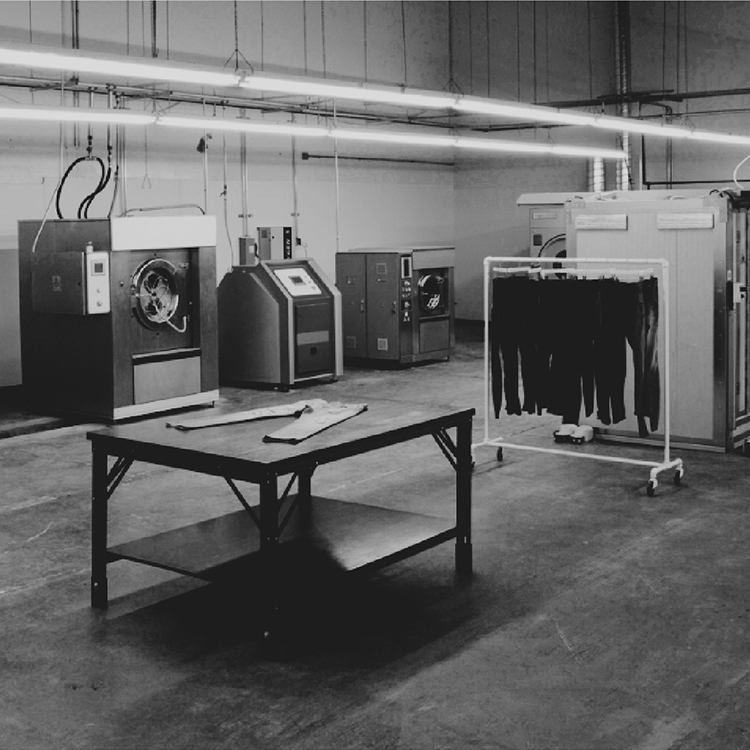
JEANS INNOVATION
At the JEANS INNOVATION CENTER in Los Angeles, California, UNIQLO is rethinking the way that jeans are made by updating the methods...
Read More
-

GENDER
All women should be able to pursue their dreams and forge a new tomorrow. We want to see women enjoy infinite possibilities. Believe in a world that enables wom...
Read More
-

PREPARING CLOTHES FOR AN EMERGENCY DISASTER
UNIQLO has aided disaster victims around the world over the past 20 years. It has learned in the process that few people prepare clothing kits for such emergencies...
Read More
Newest Contents
-

CLOTHING MADE FROM RECYCLED MATERIAL
Our ability to recycle materials is growing as recycling technology evolves. New clothes made by recycling limited resources are becoming increasingly visible in UNIQLO’s product line-up...
Read More
-

UNIQLO PRE-OWNED CLOTHES PROJECT
Once you’ve made the most of your clothes, it’s time to recycle. RE.UNIQLO is working towards a circular society by selling pre-owned clothes.....
Read More
-

JEANS INNOVATION
At the JEANS INNOVATION CENTER in Los Angeles, California, UNIQLO is rethinking the way that jeans are made by updating the methods...
Read More
-
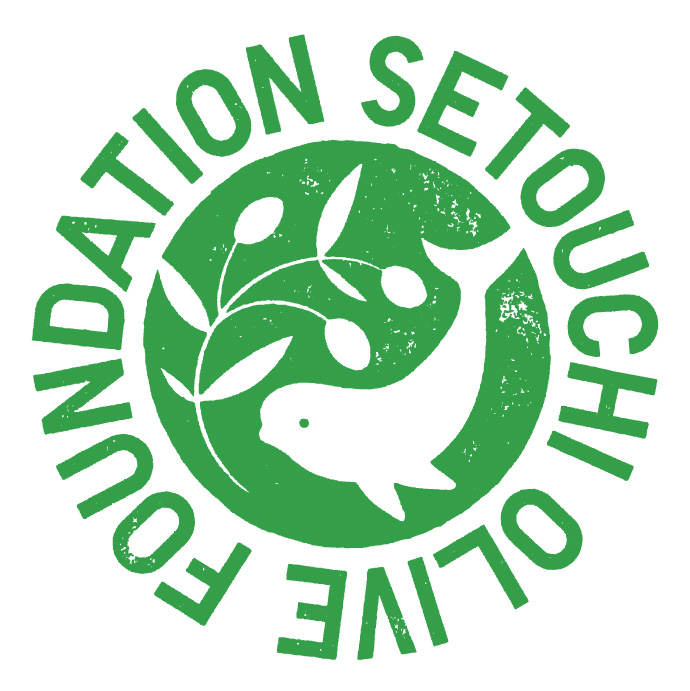
THE SETOUCHI OLIVE FOUNDATION
The Setouchi Olive Foundation is a not-for-profit organization established by world-renowned architect Tadao Ando and Kohei Nakabo....
Read More





